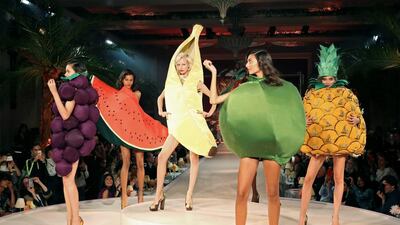Within contemporary English-speaking societies the expression, "keeping it real", has become popular to the point of platitude. According to the Urban Dictionary, the phrase means, "To keep yourself real and true, to be honest, and stick to the way you are, no matter what any one else thinks". That sounds a lot like authenticity to me. As a quality, authenticity is increasingly valued, perhaps on account of its scarcity.
Fake news (misinformation and propaganda), fake food (genetically modified), fake faces (surgically or digitally enhanced) have all experienced societal pushback in recent times. People are calling for apples to taste like apples used to taste, as well as for less deception and misrepresentation in the political sphere.
An example of this pushback, and of our growing appreciation for all things authentic, can be glimpsed in a social media crusade titled, #KeepItRealCampaign. This online operation called for women's magazines to stop photoshopping (digitally enhancing) models.
In this particular case, the pro-authenticity activists enjoyed something of a victory. One direct outcome was that the influential teen magazine, Seventeen, published its "Body Peace Treaty", which included the editorial vow to "never change girls' body or face shapes". More recently, the former editor of Vogue, Alexandra Shulman, was praised for her authenticity when she published a very candid, unedited, unfiltered bikini selfie.
Increasingly, we want what is real, true and pure. We want authentic. But what exactly is authenticity? Like happiness, we know it when we feel it, but articulating a succinct and satisfactory definition is difficult. Some philosophers, throwing their hands in the air, have simply defined authenticity as the negative space around inauthenticity. The dictionary defines it as a “quality of genuineness”, while many psychologists view authenticity as the state that emerges when we close the gap between our inner convictions and what we express of our selves in the world. However, we define it, when a person is described as authentic or as “keeping it real”, they are almost certainly being complemented.
___________________________
More from Justin Thomas
Data doesn’t lie. We need serious efforts to promote Arabic
Explaining the psychological challenges of population growth
Mental health codes should evolve to keep pace with social shifts
Ever tried sitting in silence? It could hold all the answers
___________________________
Occasionally though, we might decide to trade a little authenticity for a greater likelihood of social acceptance or adoration. The job interview, the first date, the social media profile picture will all often put a muzzle on authenticity in the pursuit of career advancement, romance or popularity. Too much authenticity in some contexts is also likely to leave other people feeling shocked, hurt and perhaps even psychologically damaged. We all know a person who prides themselves on always “telling it like it is”, and some of us might even justify our selfish transgressions by using the, “I'm just keeping it real” defence.
Famously, AJ Jacobs, the author, journalist, lecturer and self-declared, human guinea pig, attempted to be 100 per cent authentic for a few weeks. The results of this lifestyle experiment were disastrous, especially when he told his wife's parents that their conversation was boring, and when he declared to his boss that he found her attractive. Such unfiltered outbursts might be acceptable or even cute from a two-year-old, but as adults, it's both wise and compassionate to exercise a little self-monitoring and self-censorship, at least occasionally.
___________________________
More from Opinion
You want the truth? You can handle the truth
A simple plan to tackle online saboteurs
___________________________
Honesty and discretion are twin virtues. Striving for authenticity needs to be coupled with care and concern for our fellow human beings. Authenticity is also far more nuanced than simply saying whatever pops into our heads or flamboyantly shunning social conventions in favour of our unique, individualistic, predilections. Dr Mark White, professor of philosophy and author of The Decline of the Individual, suggests that authenticity is less about expressing your true self (whatever that might be), and more about not forcing yourself to be someone else.
Instead of “keep it real”, perhaps we should say, “don’t be false”; and rather than, “just be yourself”, we might counsel, “don’t be someone else”. I think our current societal emphasis on authenticity is healthy, especially if we can deepen our appreciation of the concept. We would also benefit from coupling our appetite for authenticity it with an equal concern for compassion and wisdom.
Dr Justin Thomas is an associate professor at Zayed University


